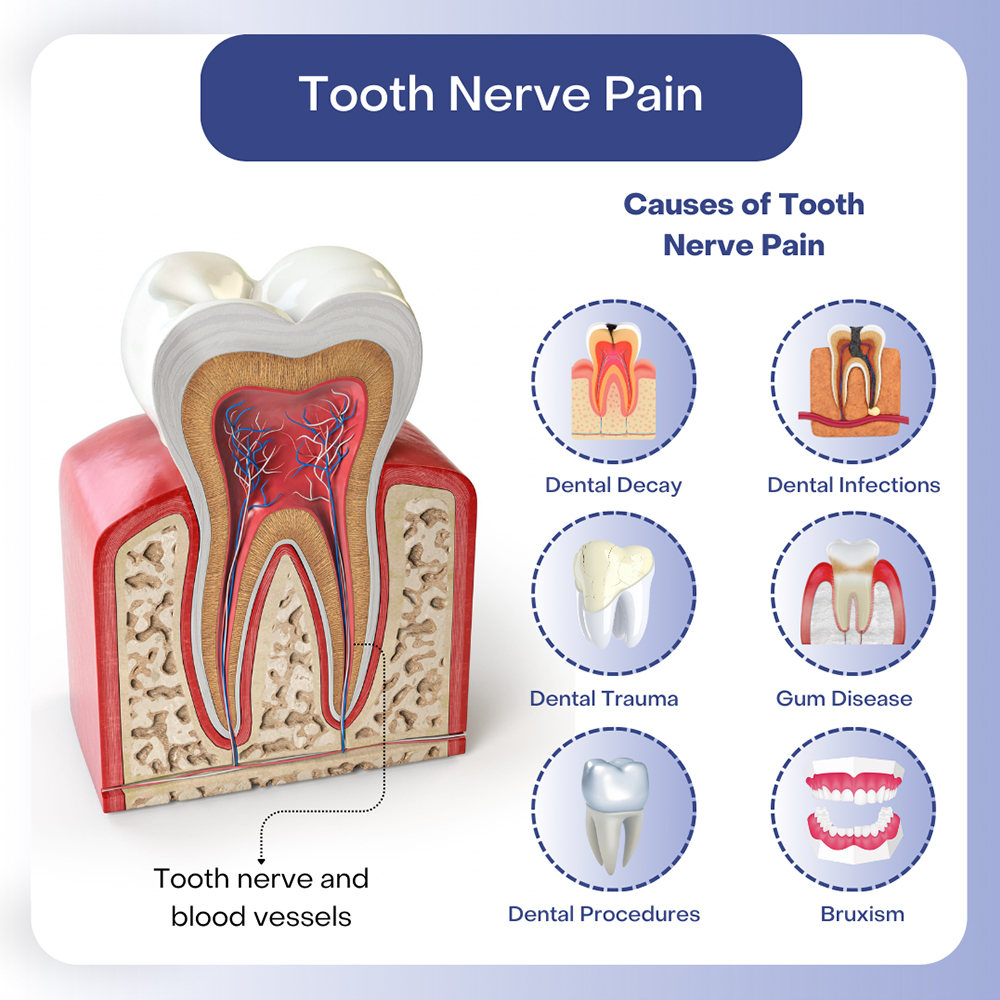Table of contents
Tooth nerve pain may not be due to a cavity; teeth grinding may have weakened your teeth, or you may have a hairline fracture that’s allowing air and bacteria to invade the nerve. Get help right away when you feel a shooting pain in your teeth. Call Hutchinson Metro Dental, where emergency appointments are available.

Inside each tooth runs a nerve that signals pain in your tooth. Several conditions contribute to tooth nerve pain, and all cause a significant disruption to your quality of life. Pain in any form indicates injury or disease to healthy tissue. Tooth nerve pain usually means something is causing excess blood flow to the tooth, inflaming the tissue and squeezing the nerve.
Often, the first signs of nerve tooth pain occur when you eat or drink something hot or cold. The sudden change in temperature sends shooting pain through your mouth. Thinning enamel as you age makes this even more noticeable. All tooth nerve pain relief comes from finding the underlying cause and treating it effectively. At the very first signs of nerve pain in your teeth, call Dr. Victoria Kushensky, a family dentist at Hutchinson Metro Dental in Bronx, New York to stop the pain and prevent further complications.
Unfortunately, tooth pain conditions are all too common. To discover the source of your pain and provide tooth nerve pain relief, Dr. Victoria Kushensky, your Bronx, NY dentist, looks for:
Dr. Victoria Kushensky, your Bronx, NY dentist decides on a proper course of action after she finds the underlying cause of your tooth nerve pain. she examines your mouth and teeth both manually and with imaging photos provided by x-rays, panoramic x-rays or CT scans for more serious conditions. A thorough family dentist like Dr. Kushensky may order blood work to check for tooth infections.
While treating your nerve tooth pain, your dentist also works to relieve your uncomfortable symptoms that may include:
After determining the cause of your pain, Dr. Victoria Kushensky in Bronx, NY takes appropriate steps to address the cause of your discomfort. Common treatments to stop nerve pain include:
Depending on the severity of your dental health problems and the level of pain, you may need to undergo several procedures. If you grind your teeth, Dr. Victoria Kushensky fits you with a mouthpiece or retainer to wear at night, giving your jaw and teeth some relief. You may be prescribed pain-relieving medication and possibly antibiotics to treat an infection. Get the proper treatment today; contact Hutchinson Metro Dental in Bronx, NY.
Hutchinson Metro Dental: Victoria Kushensky, DDS
1200 Waters Pl, Suite M107
Bronx, NY 10461
(718) 822-8787